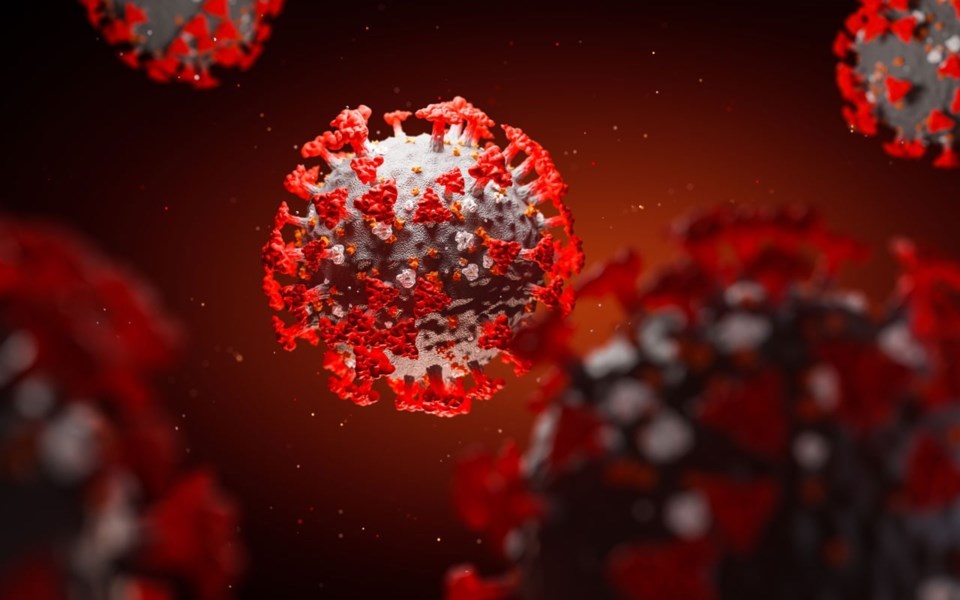As a local family physician, I feel compelled to write in support of the concerns expressed by my colleague Dr. Denton Hirsh in last week's Pique ("Fear should not influence COVID-19 policy," May 7).
After centuries of rule by emperors, popes, sultans, kings, economists, multinational corporations and elected officials, we now have doctors controlling world politics. But, like all of their predecessors, chief medical officers are over-indulging in the instillation of fear in order to maintain control of their subjects.
As Dr. Hirsh expressed so well, public policy should instead be based on rational risk-benefit analysis. Though we are temporarily enjoying the collateral benefits of cleaner air and reduced traffic accidents, I believe that society's hysterical response to the novel virus will ultimately bear long-term negative consequences far worse than the disease itself.
Relentless global media bombardment and electronic hyper-connectivity have created a monster. (Oh, and heroes, too, like me, supposedly!) We have developed a collective autoimmune disorder bordering on anaphylactic shock with multi-organ failure, including that of our financial system, the circulatory system of society. And who would have believed we'd see the day when marijuana is legal but hugging is not?
As virulent as it may be, COVID-19 is not exactly the Black Death. But we are now dealing with fear of an unfamiliar risk. Yet, we have long been totally comfortable with voluntary daily exposure to familiar risk. For example, a regular motorist is exposed to a lifetime risk of accidental death or permanent injury of over 25 per cent. In order to save 1.3 million deaths and another 30 million serious injuries worldwide annually, what chief medical officer has proposed measures to decrease dependency on personal motor transport? Instead, with the new paranoia regarding public transport, our roads may soon be more congested and more dangerous than ever.
Another exasperating inconsistency with affluent society's sudden dread of death from infectious disease is that we actually have never had any problem accepting it in other cultures. Long after achieving spectacular success in reducing infectious-disease risk through improved hygiene, clean water, vaccinations and antibiotics, we remain very parsimonious in sharing these benefits with fellow human beings in less fortunate circumstances.
For a tiny fraction of the current price we have elected to pay to "combat" COVID-19 (essentially a euphemism for delaying deaths), we could have been saving millions of young lives each year in poorer countries. Is the life of an 88-year-old white nursing home resident really worth more than that of 1,000 African children? And on the subject of the welfare of the elderly, studies consistently identify regular social contact as one of the strongest predictors of their sustained mental and physical health. How much longer are we supposed to avoid visiting our parents and grandparents?
Oh, but if we don't delay deaths, we may "overwhelm the healthcare system," we are told on a daily basis. Ironically, the current paradigm will be sure to do just that. As we continue to turtle, how many vital medical procedures and screening measures have been delayed? As Dr. Hirsh emphasized, diseases such as diabetes, hypertension, coronary artery disease and cancer all remain greater threats to the average Canadian than does contamination with COVID-19. How many new cases of any of these four common conditions have I diagnosed in the past two months with the new mortality-displacement program? None. Some hero I am!
Yet another disturbing concern with the current model is quite personal, but I suspect not unique amongst my colleagues. Forced to perform interventions in awkward, poorly lit makeshift facilities away from my office, I have already incurred contaminated needle stick and scalpel punctures, two events in eight weeks that typically occur to me perhaps once every 10 years. I'd rather be exposed to coronavirus than to HIV.
Instead of further obsession over flattening the COVID-19 curve, maybe it's time instead to flatten the C02 curve. It's funny how we have never really done much at all to make the world secure for 100 per cent of the next 10 generations, but we stop the world in its tracks to try to protect perhaps 10 per cent of the previous.
Rather than cowering into a corner for another year or two, I invite my patients to turn adversity into advantage, and transform the threat of infection into motivation to live as healthily as possible in order to minimize the risk of complications if and when exposure should occur.
And go ahead, hug your friends, but perhaps it is wise to continue to avoid picking your nose. Don't let fear happen to you.
Thomas DeMarco, MD // Whistler




